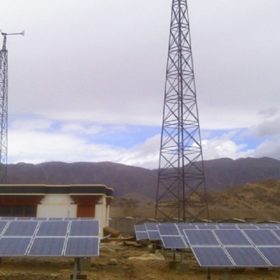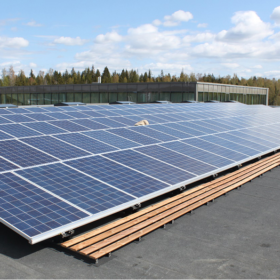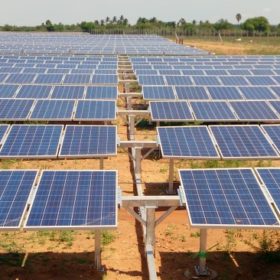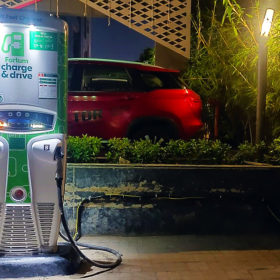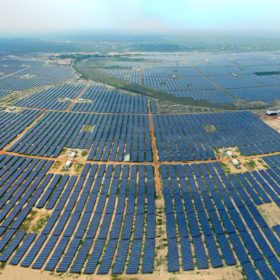EESL, Goa government sign pact on 100 MW decentralized solar
Through its newly formed subsidiary Convergence Energy Services Limited (Convergence), the Energy Efficiency Services Limited will implement ground-mounted solar power plants—in sizes of 500 kW to 2 MW—on vacant/unused land provided by the Gram Panchayats or electricity board in the state.
Green recovery through energy efficiency
The Climate Group has reported that just 33 members of its global EP100 initiative avoided carbon dioxide emission by one billion metric tonnes purely through energy efficiency measures. Of this, 360 million metric tonnes—comparable to taking 77 million cars off the road for a year—was avoided in the last year alone.
AAI’s Deoghar airport to get a solar rooftop
The Airports Authority of India Limited has invited bids to set up a 330 kWp (DC) grid-connected solar power system at Deoghar Airport in Jharkhand. Bidding closes on December 1.
NTPC amends 600 MW solar EPC tender
The state-owned power generator has reduced the tendered capacity from 600 MW to 500 MW. Further, the plants are to be located in Gujarat. Bidding closes on November 19.
Second-life energy storage winner in EDF’s startup contest
Bangalore-based Nunam—which enables second life for used lithium-ion battery cells—is the winner of Pulse India competition conducted by French energy giant EDF. The EDF contest aims at supporting Indian startups committed to developing low-carbon and sustainable energy solutions.
Cabinet approves INR22600-crore budget for solar module and advanced battery manufacture
An ambitious, INR146,000 crore, five-year expansion of a previous domestic industry spending program includes money to attract investment into the sustainable energy and transport technologies.
BMW selects KPIT software for next-generation EV charging electronics
The engagement covers software development, integration, and maintenance of combined powertrain coordination unit including charging control, and extends over several years.
Fortum gets Finnfund to accelerate EV charging infrastructure
The clean energy major has raised investment from Finnish impact investor Finnfund in its public charging point operator business Fortum Charge and Drive India.
Adani Group has the opportunity to lead India’s energy strategy
The Group’s renewable energy business (Adani Green Energy) has a market value of US$15.6 billion, which is 40% more than India’s largest thermal power generator NTPC—a company with 22 times as much capacity. The RE business is of serious global investor interest, but also materially exposed to the wider Group’s environmental, social and governance (ESG) standing. By committing to phased closure of coal plants, Adani Group could lower the risk to global capital access while aligning with the government’s vision for energy independence through fast-growing reliance on renewables.
Driving a just clean energy transition
Climate Policy Initiative and REConnect Energy have developed an innovative mechanism called Garuda to retire old, inefficient thermal plants with equivalent renewable capacity. The scheme proposes a blended tariff that would include the normal tariff for the new renewable energy plant plus the cost of decommissioning the old fossil fuel plant, while making the provision for green bonds to finance RE.

